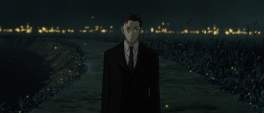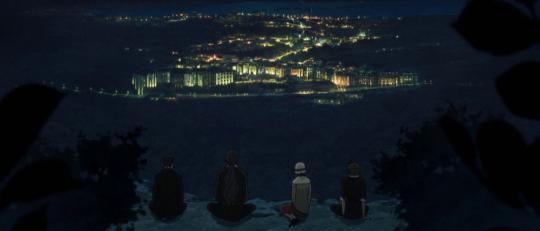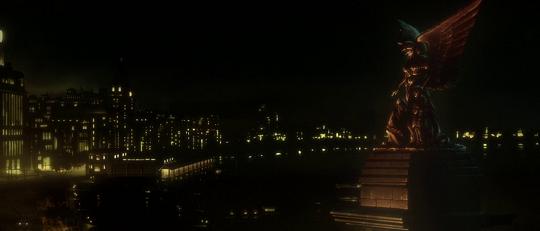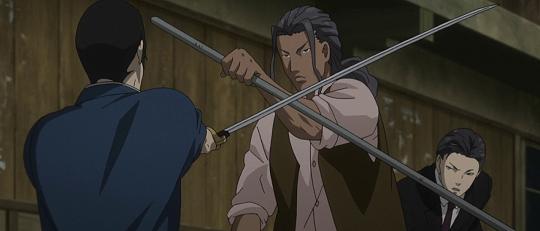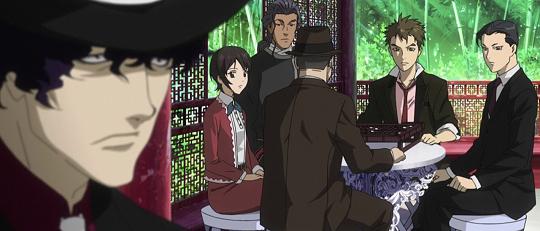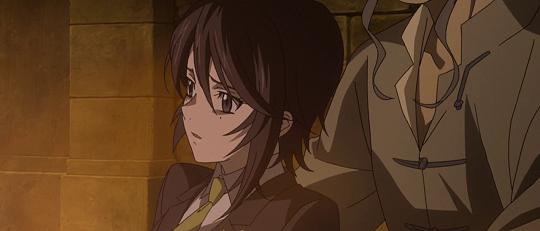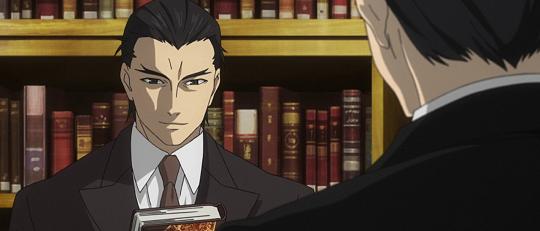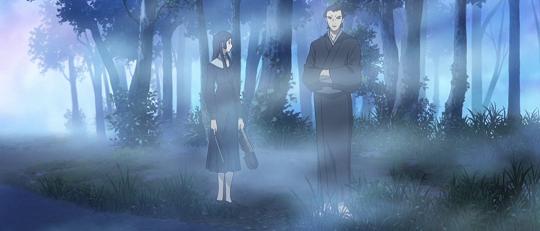In my three episode preview of Senkou no Night Raid (Night Raid in a Flash / Night Raid 1931) I expressed my concerns over whether the series would sensitively deal with Japan’s questionable activities during that time period. I can safely say that it is all too aware of the feelings evoked by that era and is hyper cautious about stepping on anyones’ toes, perhaps even a little too cautious. For example, when it first aired, the series’ seventh episode was streamed rather than broadcast amidst rumours that the episode’s Japanese point of view on the events around the Mukden incident worried some TV executives.
That should give you an idea of the kind of emotions that, even 80 years later, revisiting 1930’s Japan can evoke. For America it may have been a time of prohibition and organised crime but in the prelude to the Second World War, Japan was embroiled in grand scale military imperialism in and around Korea and China. Buoyed by their successes during the Japan-Qing and the Russo-Japanese wars (the latter of which, bizarrely, was rather covered by the atrocious series Lime-Iro Senkitan), it’s at this turning point that Night Raid starts.
Four individuals have been recruited into the secretive Sakurai organisation and asked to perform fairly standard spycraft such as hostage extraction, information gathering and infiltration. The catch? All of these people have special powers, specifically mind reading, telekinesis, teleportation and far sight. Beginning in Shanghai, the series and spends the first few episodes on individual cases from a secret-sharing Russian violinist to an old friend turned Communist party spy. At least, that’s how the broadcast series started; the home video release has an episode prior to this set on a passenger ship and is a steadier and more measured introduction to the characters and their abilities then the true first episode manages.
It’s not the only difference either. As well as having the controversial seventh episode - a dry and largely factual recounting of various figures prior to and during the Mukden incident - it also sports a final, fourteenth episode that not only ties off many of the character’s plot threads but is also significantly more consistent in tone than the series proper manages. Because although it starts with episodic tales of espionage and intrigue in the cosmopolitan and gloriously redolent Shaghai, it’s latter half is a weighty plod through nearly featureless wastelands and oblique political manoeuvring that is an unfortunate slog to get through.
It’s not that the story doesn’t have a lot going on but that it has too much and seems uncertain what is most interesting, defaulting to being a jack-of-all-trades and the master of none. So the super-powered spy angle isn’t unique in anime but nor is it overused but here the character’s powers are just… there. There is no attempt to contextualise them which puts them at ideological odds to the hard scientific and political background the rest of the story has. On the same note the introduction of a prognosticating “prophet” who floats around the periphery of some of the weightier decisions of the time period seems in poor taste, similarly so when nuclear weapons (never referred to as such here) make an appearance, forming the narrative spine of the final few episodes.
It’s the dissonance between all of these parts that contributes towards a feeling of unease while watching, the cogs are turning but they scrape and grind rather than just turn. Some of this may be rooted in the lack of context I have for both the history and feelings the series concerns itself with. Japan is the only country in the world who has ever had nuclear weapons used against them and despite arguments against this having “won” World War 2, Japan is a post-apocalyptic nation so the spectre of nuclear weapons perhaps doesn’t hold the same cache of unease one from another country would have. Similarly for someone who has grown up in an era of relative peace without the steamroller of industrialism, political unrest or the threat of war, it is hard to empathise or at least wrap one’s head around national feeling after the fact.
Fundamentally though this is a fault with the series rather because although it is obviously historically sensitive, interspersing fictional characters with real people and events, it falls short of allowing you believe in the fiction it presents. Part of that can be laid at feet of the four protagonists who never seem to connect with one another, despite one of them being able to read minds. Instead they seem to orbit each other, growing almost imperceptibly closer only for the series to end, their group dissolved and with nary a tear shed or a kind word uttered between them. Compounding this is the espionage favourite of switching allegiances at the drop of a hat, straining already tepid relationships. More blame perhaps can be laid at the feet of the antagonists who despite a wide array of foreshadowing are left significantly lacking. They are humanised which is to be commended but aren’t convincing as either credible threats or charismatic leaders; even being the sibling of one of the main cast isn’t enough to break their stoic stand-offishness.
Senkou no Night Raid is brave in a great many ways - covering topics such as slavery, imperialism, subjugation and strife is no mean feat just as dipping into the formative ideas of Japan’s much maligned Greater East Asian Co-Prosperity Sphere (replete with bold multilingualism) is akin to a fictional no-man’s land. Unfortunately by settling on the 1930’s and wisely choosing to not have the fictional characters affect the real historical events - the Mukden incident for the series and the February 26 incident for the OVA episode - it means that the characters are unable to effect any change on what is a forgone conclusion. Narrative passiveness isn’t itself an issue and the core cast would be interesting enough to carry it off were they handled better. Instead the lion’s share of the development goes to an impulsive dunce and a conflicted military man while the real interest lies with a telepathic young lady and a taciturn consort. Perhaps the irony of the series is that had it stayed with its flighty, pulpy one-shot stories - all super powers and high-society spying - then it would have been more enjoyable but would also have squandered its setting; by choosing to engage with the time period and its tribulations it is more sensitive but less able to allow its characters agency in its plot. It remains hugely thought provoking but tough to get through and without any real pay off at the end.
